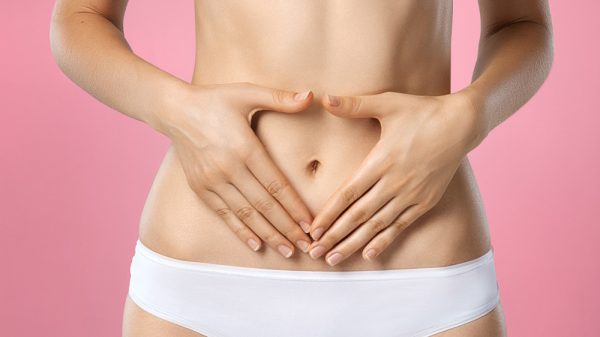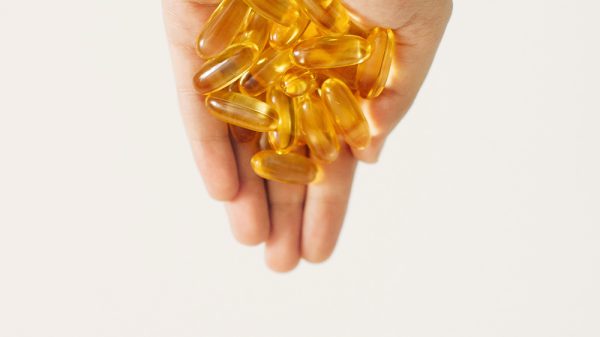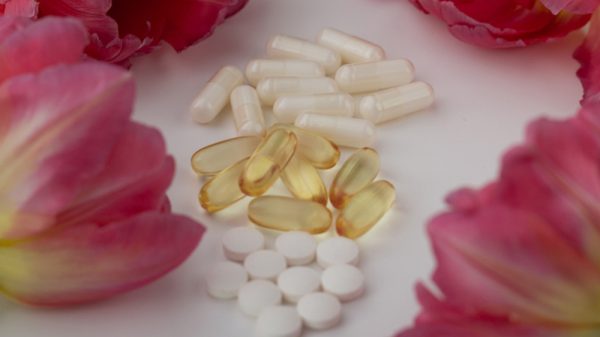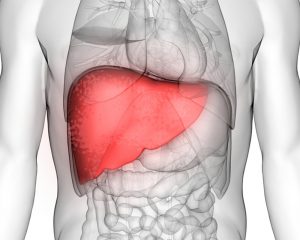If you and your partner want to conceive, it’s the right time to start thinking about your reproductive health and fertility. Both the male partner and female partner have critical roles in the conception of a child. In this article, we take a look at improving sperm count and movement, which is often referred to as the male factor.
Are you aiming to improve your sperm count and sperm motility? Keep reading to find out about foods to increase sperm count as well as other diet and lifestyle tips for improving male fertility.
Your Guide to Supplements and Foods That Increase Sperm Count
How can a man increase his fertility? There are many diet and lifestyle tips that can help a man increase his fertility. Here we’ve put together the top tips for supporting healthy sperm production and sperm motility. Let’s get right into it!
1. Eat Foods with Loads of Antioxidants
Any foods packed with antioxidants are often referred to as superfoods. In particular, fruits and veggies are packed with vitamins, minerals, and polyphenols that exhibit potent antioxidant activity. These micronutrients fight oxidative stress, a negative cellular state that impacts sperm quality. Oxidative stress refers to the accumulation of waste products within cells, which can be a result of a poor diet, physical or emotional stress, or exposure to chemicals. When waste builds up within cells, this means that reactive free radicals accumulate within cells and react with tissues to inflict damage and slow down biochemical processes.
Did you know that sperm production is one of the biochemical processes that can be affected by oxidative stress? Sperm formation – or spermatogenesis – requires that cells divide perfectly millions of times, resulting in active sperm with perfect and undamaged sets of DNA. However, oxidative stress that affects the cells of the male reproductive organs can impede the production of healthy sperm, therefore impacting semen quality. Sperm impacted by oxidative stress may have damaged DNA, or they might not swim effectively.
Let’s go through a list of the different types of antioxidants and their food sources that can be helpful in improving male fertility.
- Vitamin C: You may be familiar with vitamin C as a healing vitamin that helps your body repair from injuries and heal from sickness. But did you know that vitamin C is also a potent antioxidant that can help you produce healthy sperm? is one of these potent antioxidants that can equip
- Carotenoids: Carotenoids are powerful antioxidants that help scavenge free radicals and support healthy sperm production. Lycopene is one type of carotenoid that may be particularly helpful for supporting male fertility. What foods contain lycopene? To incorporate more lycopene into your diet, reach for foods like tomatoes, watermelon, guava, and papaya.
- Vitamin E: Vitamin E supports the growth of healthy skin and nails, as well as sperm cells. Get more vitamin E in your diet by eating avocados, almonds, spinach, and sunflower seeds.
- Polyphenols: Polyphenols are antioxidant compounds found in many fruits, leafy vegetables, and herbs that are powerful antioxidants. For example, you can find polyphenols in pomegranate, green tea, blackberries, dark chocolate, kale, broccoli, and spinach
2. Season with Fenugreek
Consuming fenugreek seeds may help improve your fertility. A study published in the International Journal of Medical Sciences suggests that consuming fenugreek may help support healthy testosterone levels and sperm quality. (1)
What is fenugreek, anyway? It has a warm flavor that adds depth to a variety of different dishes. Fenugreek is a seasoning that has been compared to clove. You can find fenugreek in the form of seeds, and because of its warmth, it adds an extra dimension of flavor to curry dishes and other spiced dishes.
3. Get Lots of High-Quality Protein
High-quality protein is a vital component of any healthy diet, because it provides essential amino acids. What are amino acids, anyway? Amino acids are the small nitrogen-containing compounds that bind together to create protein found in a variety of foods that we eat. The two main types of amino acids are essential amino acids and nonessential amino acids. As their name suggests, essential amino acids are absolutely indispensable for the body to function normally and healthfully. Essential amino acids are necessary to produce muscle, enzymes, hormones, and neurotransmitters. Because essential amino acids are necessary for nearly every organ system, we must eat them on a daily basis. Beyond simply getting them in our diets, we must also get essential amino acids in optimal ratios. If we are missing any single essential amino acid in our diets, the body cannot utilize the other amino acids as effectively.
High-quality protein is critical for healthy sperm production. Research on mouse models suggests that BCAA may improve sperm quality, in addition to exercise. (2)
Branched-chain amino acids refer to the essential amino acids leucine, isoleucine, and valine, and are available in high-quality protein sources.
Essential amino acids, in general, are crucial for improving body composition and reducing fighting obesity, which is a significant cause of low sperm count. (3)
So, how do essential amino acids improve body composition? On a daily basis, the body turns over muscle tissue and gets rid of damaged proteins and amino acids. Fresh protein and amino acids are required to replace the turned over muscle tissue each day. Supporting muscle mass and lean body tissue is an important part of
High-quality protein is any protein source that offers balanced ratios of essential amino acids. So what kinds of food does this include? Animal proteins provide optimal ratios of amino acids. Ideal animal proteins to incorporate into your diet include milk, cheese, yogurt, chicken, turkey, and fish. When it comes to meat and dairy, choose minimally-processed products that are low in saturated fat and sodium.
In contrast to animal proteins, plant-based proteins are incomplete protein sources. This means they only offer incomplete ratios of essential amino acids. In order to get all the essential acids that you need on a daily basis, make sure that you eat a variety of plant-based proteins on a daily basis. Great sources of protein
4. Get Plenty of Omega-3 Fatty Acids
Getting lots of omega-3 fatty acids is an important part of an anti-inflammatory diet. Inflammation, just like oxidative stress, plays a crucial part in fertility issues. Systemic inflammation can impact the reproductive organs, leading to reduced fertility and suboptimal functioning of cells and organ tissues.
How can you make sure you’re getting plenty of omega-3 fatty acids in your diet? Make sure you eat foods like walnuts, sunflower seeds, ground flaxseeds, chia seeds, and fatty fish in your diet. Salmon, tuna, mackerel, and sardines are excellent options for supporting omega- fatty acids. Generally consuming an anti-inflammatory diet packed with omega-3 fatty acids helps all organs function more smoothly and effectively, therefore increasing fertility.
5. Take Ashwagandha
Ashwagandha is a herb used in traditional Indian medicine, and is known to improve male fertility. Research confirms this. A pilot study published in Evidence-Based Complementary and Alternative Medicine studied men with a sperm count below 20 million per milliliter. (4) The experimental group received an Ashwagandha supplement each day, while the control group received a placebo. Results revealed a significant increase in sperm count, semen volume, and sperm motility in comparison to the control group. (4)
In addition to its ability to boost male fertility, ashwagandha is also known to be an aphrodisiac. So, if you and your partner are trying to conceive,
6. Engage in Regular Exercise
Not only is exercise good for your overall health, but it also helps to boost male fertility. An article published in the American Journal of Men’s Health discusses the importance of consistent physical exercise for male sperm production. (5)
What kind of exercise should you get to help support healthy sperm production? Aim to get about 30 minutes of aerobic exercise on a daily basis. Aerobic exercise includes activities like running, jogging, dancing, biking, and swimming. Incorporating strength training into your regular regimen is also helpful because it supports muscle growth and balanced body composition.
7. Maintain a Healthy Weight
Being overweight is associated with many non-communicable diseases, including type 2 diabetes, fatty liver disease, high cholesterol, and cardiovascular disease. But did you know that obesity is also connected to having a lower sperm count?
Maintaining a healthy weight lowers your risk of developing metabolic conditions, while also improving your fertility. If your body mass index (BMI) is above the normal range, making diet and lifestyle changes will support your fertility. You can encourage weight loss by cutting unhealthy foods out of your diet, monitoring calorie intake, and incorporating exercise into your daily routine.
8. Get Enough Vitamin D
Vitamin D insufficiency and deficiency is practically an epidemic in the United States. Vitamin D encourages healthy immune function, as well as proper DNA expression and function of nearly all organ systems. A study published in the Asian Journal of Andrology suggests that vitamin D plays a role in improving sperm motility, which can improve male fertility. (6)
Where can you get the vitamin D you need? There are very few food sources of vitamin D, aside from fatty fish like mackerel and fortified foods like milk and cheese. Sunshine is a primary source of vitamin D. Exposure to the sun causes the skin to synthesize vitamin D that can be used in biological processes. An individual may need between 10 and 45 minutes of sun exposure, with lighter skin tones requiring less sunlight and darker skin tones requiring more sunlight for vitamin D synthesis.
9. Try Ginseng Supplements
Ginseng is an herb that has been used for centuries in Chinese medicine. An article published in Spermatogenesis provides support for the numerous ways that ginseng has been shown to positively impact male fertility. (7) Ginseng may help increase sex drive, increase blood flow to help maintain erections, and also improve sperm count and motility.
You can incorporate ginseng into your diet by taking a high-quality supplement or preparing ginseng tea.
10. Eat Organic Foods as Often as Possible
Why is eating organic important? Non-organic foods contain pesticides, which are sprayed on plants as they grow, to deter insects and other critters from destroying the crops. Though they are effective for that purpose, these chemicals not only impact the insects, but also the people eating the produce when it makes its way to grocery stores. When we ingest pesticides, they travel throughout the body and cause oxidative stress, which can hamper the healthy production of sperm in men.
When you are buying organic, keep in mind that pesticides are more prevalent in certain fruits and veggies than others. For example, it’s more important to buy foods like spinach, kale, potatoes, and apples organic because they either have no peel or an edible peel. On the other hand, we remove the peels of bananas, avocados, and oranges, which protects the inner fruit from pesticides.
11. Eating an Overall Anti-Inflammatory Diet
The best diets for men are those that are high in anti-inflammatory foods and antioxidants. Eating a diet rich in healthy foods can increase overall reproductive health, as well as the motility and quality of sperm. Let’s go over the important components of an anti-inflammatory diet That helps address fertility issues for men.
- Fruits and veggies: Fruits and veggies are a critical part of any anti-inflammatory diet, including one that supports healthy sperm function. Fruits and veggies are packed with vitamins, minerals, and antioxidants that reduce oxidative stress and encourage the production of healthy sperm cells.
- Whole grains: Whole grains are filled with fiber that promotes balanced gut flora. A balanced microbiome, in turn, supports the production of anti-inflammatory compounds that travel throughout the body and encourage the effective functioning of nearly all organ systems, from the brain to sperm production.
- Healthy fats: Not all fats are bad, and as mentioned, some are extremely healthy and exhibit anti-inflammatory properties. To promote healthy sperm production, stick to polyunsaturated and monounsaturated fats. You can find these healthy fats in foods like walnuts, fatty fish, pumpkin seeds, and olive oil.
Eating an anti-inflammatory diet also means excluding certain foods from your diet. To encourage healthy sperm production, stay away from the following foods:
- Saturated and trans fats: It is well documented that saturated and trans fats are detrimental to overall health by increasing inflammation in the body and raising the risk of cardiovascular disease. Did you know that saturated and trans fats may also cause a decrease in sperm production and functionality? To support your fertility, cut out foods that contain saturated and trans fats. This means avoiding fast food, fried foods, baked goods, fatty meat and cheese, and pre-prepared pizzas and baked goods.
- Added sugars: Consuming an abundance of added sugar is extremely unhealthy and can negatively impact sperm production. Consuming an excess of added sugar contributes to weight gain as well as other metabolic conditions such as type 2 diabetes, insulin resistance, and fatty liver disease. Added sugars cause the blood glucose levels to rise. And high levels of sugar are shuttled throughout the body. When blood sugar levels are chronically High, they inflict inflammatory damage and oxidative stress on numerous organ systems, including the reproductive system. To encourage healthy sperm production, stay away from foods with high levels of added sugar, such as baked goods, sugary breakfast cereals, granola bars, candy, and soda.
- Preservatives: Many foods, especially processed foods, contain high levels of chemicals and preservatives that are intended to increase the shelf life of foods. However, an excess of preservatives can cause oxidative stress and hinder healthy sperm production. Stay away from packaged and processed foods such as cured meats, frozen prepared foods, chips, cookies, and cakes.
12. Avoid Holding Electronics on Your Lap
Though research is not conclusive, experts have hypothesized that holding electronic devices on your lap may emit low-grade radiation that affects the testicles, and subsequently, the production of sperm cells. If you are using your cell phone or laptop, use a desk or table to ensure that the device remains at a safe distance from your reproductive organs.
Things to Keep in Mind
Keep in mind that the male factor for infertility can encompass other elements besides sperm count and sperm motility, including erectile dysfunction and underlying conditions that affect sperm production. If you and your partner have been trying to conceive for a while without success, it is a good idea to visit a fertility specialist to evaluate factors contributing to fertility difficulties. A physician who specializes in reproductive medicine as wella s a registered dietitian can help you identify the root cause of fertility issues and guide you in the best treatment, diet, and lifestyle changes that support your needs. Finally, always consult your physician before adding any new supplements to your regiment.
Conclusion
The male factor is a vital part of fertility that is sometimes overlooked. However, male infertility accounts for about half of all cases of couples who are having issues conceiving. If you have a lower sperm count than normal, there are steps you can take to increase your sperm count and support sperm health.

References:
(1) https://www.ncbi.nlm.nih.gov/pmc/articles/PMC5278660/
(2) https://onlinelibrary.wiley.com/doi/abs/10.1111/and.13183
(3) https://academic.oup.com/ajcn/article/84/3/475/4648841
(4) https://www.ncbi.nlm.nih.gov/pmc/articles/PMC3863556/
(5) https://www.ncbi.nlm.nih.gov/pmc/articles/PMC5675222/























